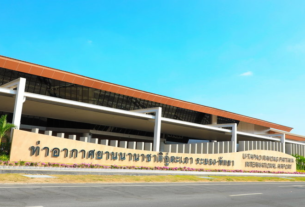A proposed nuclear power plant in
The state utility will need more time to provide information to the public about nuclear power and its potential benefits, he said yesterday.
Egat has received a feasibility study from Burns and Roe (
“I think we need more time to inform the public that nuclear power does not mean atomic bombs, and to counter the bad image nuclear power plants have had ever since the leakage in Chernobyl, Russia. Safety standards and radioactive waste management will also be implemented,” said Mr Suthat.
Under the Power Development Plan revised in March 2010,
Of the total, Egat would be in charge of generating 5,000 MW from nuclear power after 2020, 8,400 MW from coal-fired plants, and buying 11,669 MW from neighbouring countries. Another 4,617 MW would be generated from renewable resources in plants to be developed by private investors under new licences to be awarded.
Responsibility for the remaining 24,319 MW would be decided by the government in the future, including whether to open more bids to private investors.
“The first nuclear power unit is scheduled to operate in 2020, so we have only four or five years for preparation and another four to five years for construction. It’s a very short time,” said Mr Suthat.
He said that over the next decade, coal, liquefied natural gas and nuclear would still be the main fuels for electricity generation, because renewable energy could not be relied on as a mainstream source, he added.
Chen Namchaisiri, a vice-chairman of the Federation of Thai Industries (FTI), said people were afraid of nuclear power because they were not sure about safety measures and radioactive waste management, and this would be a challenge for power policy planners.
He said
The government should provide information not only in the media but also in school classes, said Mr Chen.
Source: http://www.bangkokpost.com

